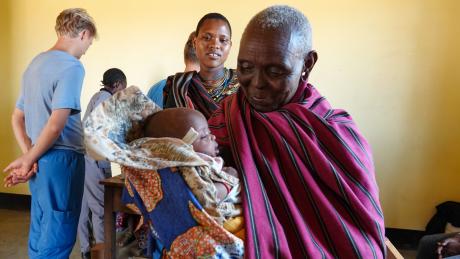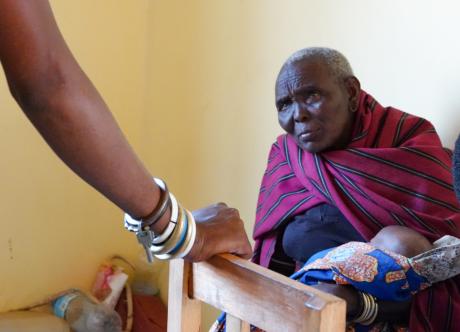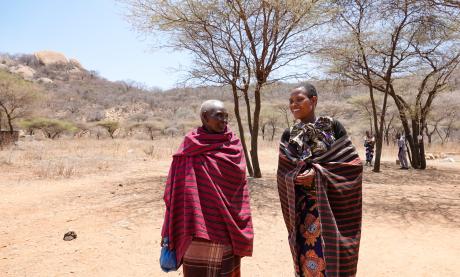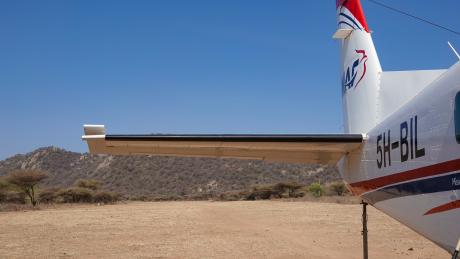
In the remote village of Endanyawish, baby Katalina was left without a mother at birth and is now being raised by her grandmother, Dabje. But thanks to MAF flights and Haydom Lutheran Hospital, basic health care and vaccinations are within reach.
Katalina Maganga entered the world under a shadow of sorrow. Her mother died shortly after giving birth at home — something far too common in the remote Tanzanian village of Endanyawish, where access to medical care is limited and the journey to hospital is long and rugged.
However, Katalina was not left alone. Her grandmother, Dabje Bunge’h, stepped in immediately. She prepares cow’s milk daily as a substitute for breast milk.
“I’m taking care of my daughter’s baby. I want her to grow healthy and strong,” she says. “If God wishes, I want her to grow wisely.”
The challenges Dabje faces are compounded by her age and the fact that she has limited help. Having given birth to six children, with only one son, help reduced as daughters got married and left.

Dabje is grateful for the limited support she receives from her daughter-in-law (the wife of her only son), who does what she can while also caring for her own young baby. On top of that, Dabje is raising another grandchild, the daughter of her late daughter, who also now depends on her.
“I had six children of my own,” she said. “Only one son is still nearby to help me.”
But life in Endanyawish makes even basic medical care difficult. Surrounded by rugged terrain and with no real roads in sight, a simple medical visit requires a six-hour journey on foot trails, a journey many cannot afford to make.
Every time I want to go to the hospital, it’s a sacrifice.
“We spend the whole day going and coming back,” said Dabje. “Sometimes we return at night.
“If the plane stops coming, we shall sit. There's nothing we shall do.”
When Mission Aviation Fellowship flew a medical team from Haydom Lutheran Hospital into the village, it made all the difference. For Dabje and Katalina, it meant life-saving care right at their doorstep.
“Every time I want to go to the hospital, it’s a sacrifice,” she said. “But when the nurses fly in, it’s nearby.”
At just three weeks old, Katalina received the vaccinations she would likely have missed if not for the flight.

Rehema Matfari, a nurse with Haydom Lutheran Hospital for 28 years, was one of the team flown in by MAF. She said the mobile clinic work is crucial.
“This work has real meaning because it helps both mother and child,” Rehema said. “Children stay healthy because they receive all their vaccinations. Without that, they would be sick.
“We travel by plane because the clinics we go to are far — we cross mountains and valleys. MAF gives us the fast transport we need. The aeroplane means we can help people in places that are otherwise unreachable.”

MAF pilot Peter Griffin, who flew the team that day, knew just how significant that short flight can be.
“We serve the most remote communities,” Peter said. “Often, just a 15- to 20-minute flight means people can receive the help they need — basic healthcare that would otherwise never be within reach.
“Without us flying the teams to these small airstrips, they couldn’t be visited. There would be no hope of healthcare for these children, mothers, and the sick.
“Seeing mothers and children come to these clinics always warms my heart.”